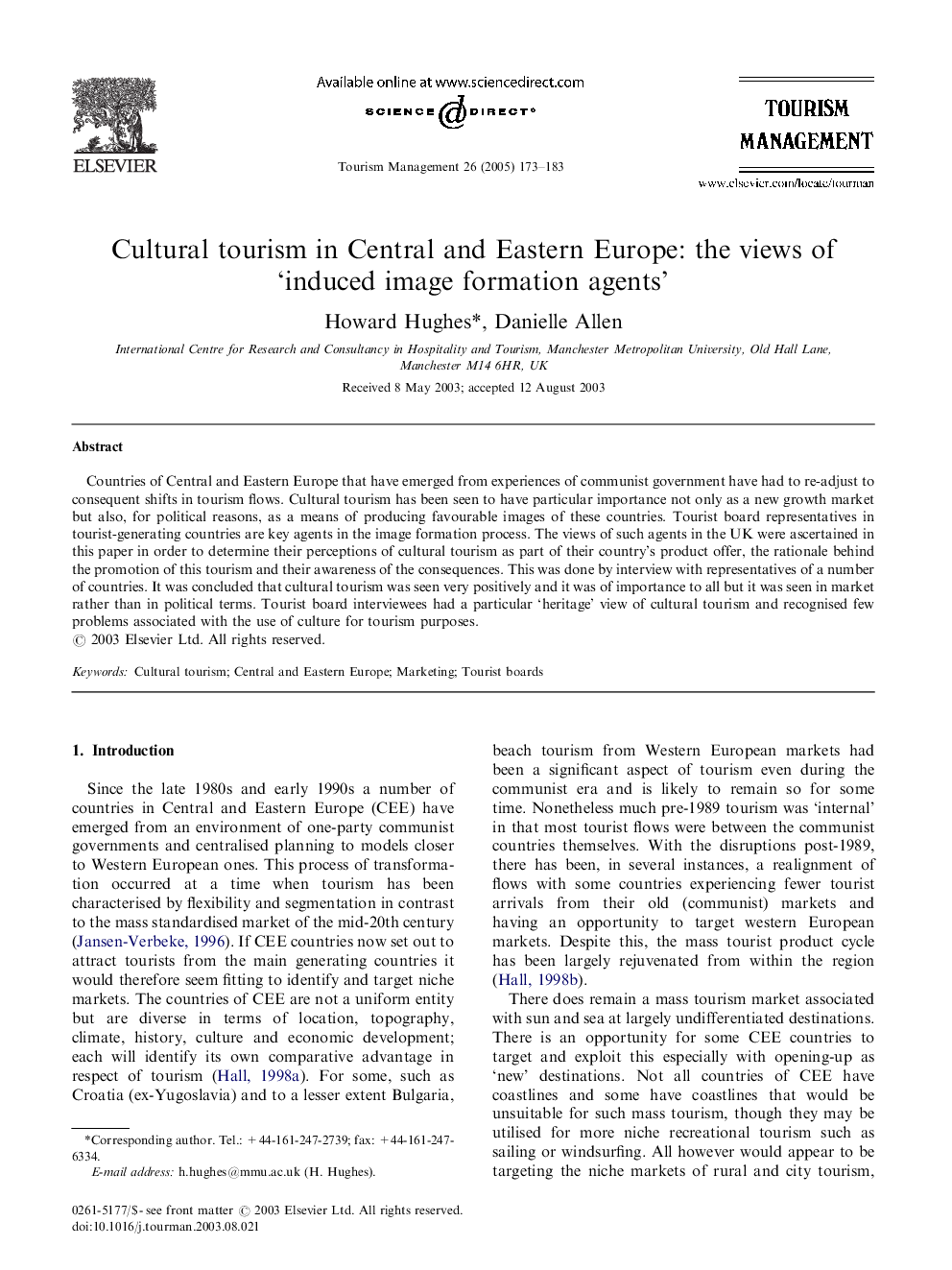| Article ID | Journal | Published Year | Pages | File Type |
|---|---|---|---|---|
| 10490908 | Tourism Management | 2005 | 11 Pages |
Abstract
Countries of Central and Eastern Europe that have emerged from experiences of communist government have had to re-adjust to consequent shifts in tourism flows. Cultural tourism has been seen to have particular importance not only as a new growth market but also, for political reasons, as a means of producing favourable images of these countries. Tourist board representatives in tourist-generating countries are key agents in the image formation process. The views of such agents in the UK were ascertained in this paper in order to determine their perceptions of cultural tourism as part of their country's product offer, the rationale behind the promotion of this tourism and their awareness of the consequences. This was done by interview with representatives of a number of countries. It was concluded that cultural tourism was seen very positively and it was of importance to all but it was seen in market rather than in political terms. Tourist board interviewees had a particular 'heritage' view of cultural tourism and recognised few problems associated with the use of culture for tourism purposes.
Related Topics
Social Sciences and Humanities
Business, Management and Accounting
Strategy and Management
Authors
Howard Hughes, Danielle Allen,
